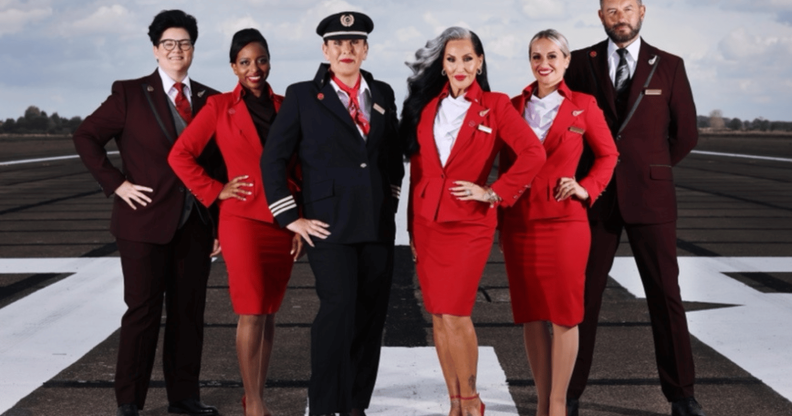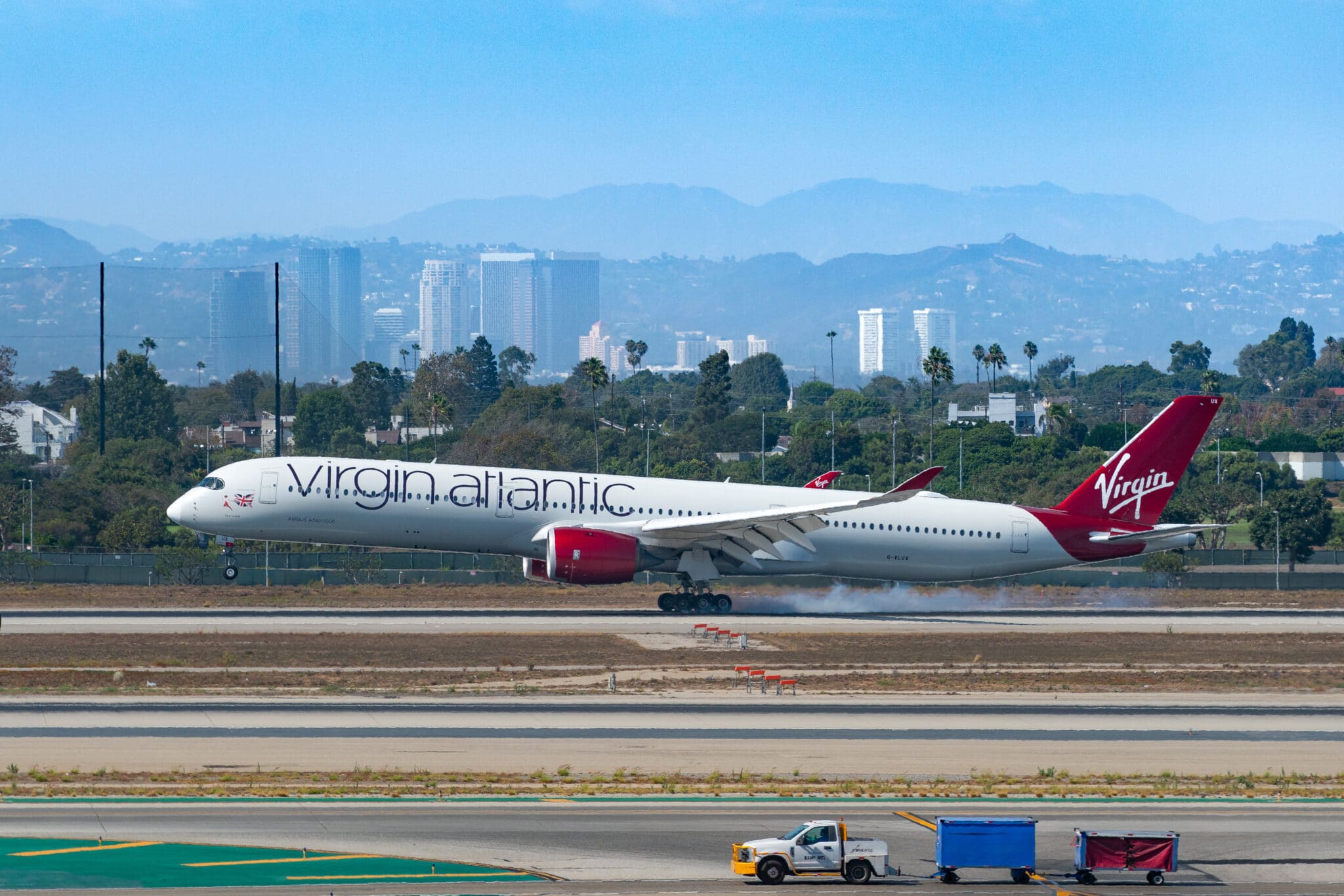Virgin Atlantic allows crew to wear pronoun badges and uniforms expressing their gender identity

The company celebrated their policy update with a fashionable photoshoot. (Virgin Atlantic/Provided)
Virgin Atlantic has updated its gender identity policy to allow its crew to wear pronoun badges on their uniforms.
The airline also announced it would be updating its policy on Wednesday (28 September) to allow employees to “wear the clothing that expresses how they identify or present themselves” by removing gendered uniform requirements.
The policy change includes updates to allow non-binary gender markers to be used on ticketing systems and mandatory inclusivity training for staff and hotel partners.
The announcement comes as part of the company’s “Be Yourself” strategy, which aims to create a more inclusive space for gender-nonconforming individuals.
“The updated gender identity policy is so important to me,” Virgin Atlantic employee Jaime Forsstroem said in a statement.
“As a non-binary person, it allows me to be myself at work and have the choice in what uniform I wear.”

Virgin Atlantic airlines Airbus A350-1041 arrives at Los Angeles international Airport in Los Angeles, California. (AaronP/Bauer-Griffin/ Getty)
Virgin Atlantic celebrated the inclusive policy update in style with a classy photoshoot starring RuPaul’s Drag Race star Michelle Visage alongside Tanya Compas, Talulah-Eve and Tayreece Nye.
The group wore the strikingly-stylish uniforms designed by Vivienne Westwood as they strutted down an airport runway.
In a statement, Visage said: “As the mother of a non-binary child, and as an ally to the LGBTQ+ community, these efforts by Virgin Atlantic to further inclusivity for its people are extremely important and personal to me.
“People feel empowered when they are wearing what best represents them, and this gender identity policy allows people to embrace who they are and bring their full selves to work.”
Happiness boosted by 65 per cent
Virgin Atlantic cited a recent study that outlined the benefits of allowing gender-diverse expression in the workplace as one of the main reasons behind the campaign.
The study reportedly found enabling employees to express their true gender identity boosts overall happiness by around 65 per cent, creates a more positive workplace culture, and enables employees to feel more accepted when at work.
“We believe that everyone can take on the world, no matter who they are,” Virgin Atlantic’s chief commercial officer Juha Jarvinen said.
“That’s why it’s so important that we enable our people to embrace their individuality and be their true selves at work.
“It is for that reason that we want to allow our people to wear the uniform that best suits them.”
‘Attention, all passengers’
Airline companies have become increasingly receptive to gender-neutral language over the past few years, with companies like British Airways and Air Malta signalling their support by dropping gendered language during it’s on-board airline greetings.
Both companies chose to refer to passengers as “guests” and opted to change announcements, which included the term “ladies and gentlemen,” to more gender-neutral options such as “Attention, all passengers.”
But things can still improve, especially with airlines’ automated booking systems which don’t explicitly allow for gender-neutral markers.
Airline Delta was accused of “discriminating” against non-binary passengers in January 2022 after a mother from Arizona attempted to buy a plane ticket for her non-binary adult child as a Christmas present, but couldn’t add a gender-neutral marker.
Dawn Herry said in Twitter thread: “As it stands, at least with Delta, non-binary people are not allowed to fly.
“When a policy makes it impossible to buy a ticket that will comport with TSA guidelines, the result is the same, and that’s discrimination.”
A Delta spokesperson told PinkNews that the airline has since “begun the process” of updating the booking system to allow non-binary gender options later in the year.

